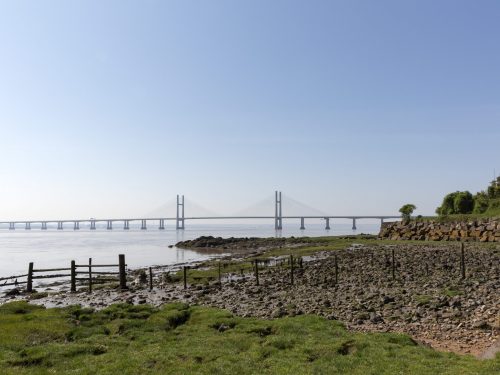New report makes powerful case for energy-harnessing tidal lagoons in Severn Estuary

The government should go ahead with harnessing the huge potential of energy from the Severn Estuary, according to a group of experts appointed to investigate the long-running issue.
However, the special commission has ruled out building a barrage across the estuary – a favoured option for decades – and instead is recommending a series of commercially viable tidal lagoons over the long-term.
The specially assembled Severn Estuary Commission said a barrage – which has proved highly controversial since it was first proposed more than a century ago – should not be pursued at this stage due to its environmental impact, legislative challenges and disruption to ports, such as Bristol, and other commercial activities.
Previous official reports said a barrage across the estuary could potentially generate around 7% of the UK’s energy needs.
The commission, set up by the Western Gateway – the partnership covering the ‘super-region’ stretching from Swindon to Swansea – concluded that tidal range energy in the estuary was ‘feasible’ and could deliver predictable, renewable electricity that would work independent of weather conditions.
Unlike wind and solar power, which are weather-dependent and intermittent, tidal range is predictable and consistent due to the natural cycles of the tides. This predictability makes it a stable energy source, enhancing grid reliability and offering a potential alternative to nuclear or fossil fuel backups. Combined with storage solutions, tidal power can provide continuity and stability of electricity supply.
Unlike wind and solar power, which are weather-dependent and intermittent, tidal range is predictable and consistent due to the natural cycles of the tides.
This makes it a stable energy source, enhancing grid reliability and offering a potential alternative to nuclear or fossil fuel backups. Combined with storage solutions, tidal power can provide continuity and stability of electricity supply.
With UK electricity demand set to more than double by 2050, the report calls for urgent investment to make sure tidal energy can play a part in the future energy system in a way which is sustainable.
The Severn Estuary has one of the highest tidal ranges in the world and could provide the vast majority of the UK’s total tidal energy. However, it also remains of international environmental importance.
To harness this energy without damaging natural habitats, the commission has recommended:
- The Government takes steps to ensure that tidal range energy is recognised in national policy to allow progress on the many schemes proposed across the country.
- Both the UK and Welsh governments back the development of a new tidal lagoon in the Severn Estuary as part of a ‘Commercial Demonstration Project’. As well as generating a large amount of low-carbon electricity, this project would drive investment, generate critical environmental data and, if successful, pave the way for further projects securing economic growth and long-term energy resilience for the UK and make the country a global hub for tidal range energy.
- Improved cross-border working and planning is needed to ensure any new development can be strategically delivered to ensure best outcomes for the area.
The commission was chaired by acclaimed engineer Dr Andrew Garrard CBE, who co-founded pioneering Bristol-based wind power industry consulting company Garrad Hassan in 1984 and chaired the city’s year as European Green Capital in 2015.
Dr Garrad, who recently received the Queen Elizabeth Prize for Engineering in recognition of his role in pioneering development the modern wind energy industry, said: “This last year has been an eye-opening experience for all of us on the commission, understanding the huge potential of this source of renewable energy and also the international environmental importance of the estuary.
“Indeed, what sets this commission aside from previous studies is the emphasis that it has placed on the environment.
“Electricity demand will increase with the widespread uptake of electric vehicles, electrification of heating, industry and proliferation of data centres. We urgently need to get serious about how we can make use of our natural resources to meet this demand whilst also tackling our carbon emissions.
“Given the likely timelines for developing a project of this scale, we need to act now to ensure we can deliver the energy when it is needed and at the same time safeguard the environment.”
Sarah Williams-Gardener, Chair of the Western Gateway, said:“After many years of debate, we now know that the huge potential of tidal energy in the Severn can and should play a key part in our energy supply.
“We need urgent action to make the most of this opportunity. A lagoon project would not only deliver predictable renewable energy, it could also add up to £12bn GVA to the UK economy and 220,000 job years in the construction phase.
“I am very grateful to the work of this commission to explore this huge opportunity for the UK. On behalf of our board of local authorities, I look forward to working with both UK and Welsh Government to make this a reality.”
The report’s recommendations were today welcomed by the Welsh Government.









